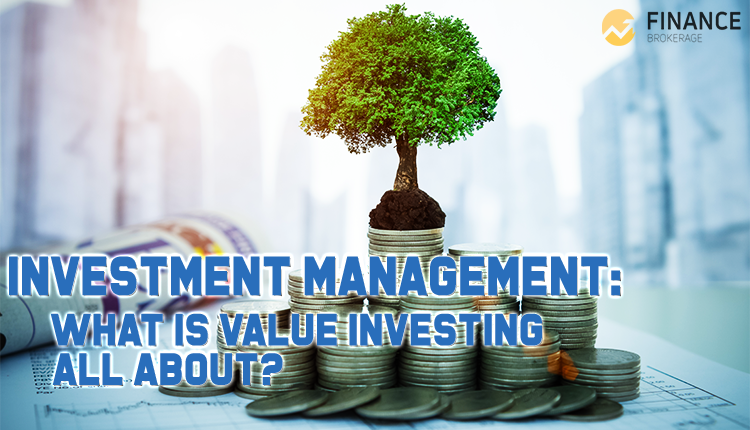
Investment Management: What is Value Investing All About
Stocks investment is one of the most dominant ways to achieve financial independence. But if you lacked strategy, long-term mindset and knowledge about it, you might waste money. If you’re still a beginner, it’s best if you acquire information about stocks, bonds, mutual funds, and ETFs. So, you would know which can be an excellent choice for your hard-earned money.
Value investing is a tactic to look for stocks selling lower than the value of their assets or to their cash flows. In other words, investors can attain a margin of safety when a company sells its assets or cash flows they produce at a discounted price to its intrinsic value. It is because they paid lower than the actual worth of an asset.
And as time goes by, they can make a profit after the market recognizes the mismatch of what a stock trades for and its real value. Investors don’t have to worry if a business fails and its assets liquidate because those assets’ value will guard any losses.
The protective nature and promising gains when buying an asset below its intrinsic value are some advantages value investing possess. However, it demands a lot of patience because it may take a while before the market changes the price of the asset that can lead to higher gains.
The Great Depression and its aftermath are where value investing originated. During this time, the focus is only on purchasing companies with assets’ value is higher than the traded stock.
And then, it has developed over the years. From buying companies, value investing evolved into fundamental analysis of the cash flows and gains of a company, its advantages to the market, and seeking for intensely discounted stocks.
List of Victorious Value Investors
- Benjamin Graham – the father of value investing. He is the root of precepts of value investing, the concept of intrinsic value and the margin of safety.
- Warren Buffet – Berkshire Hathaway’s CEO. He uses the value investing tactic to deliver excellent returns to investors.
- Shelby Cullom Davis – practiced the strategy in a distinctive manner. He concentrated in the industry of insurance. The edge of an insurance company is how they make money.
- Joel Greenblatt – focuses on his “magic formula”. His formula measures businesses by knowing their earnings yield and return on invested capital.


